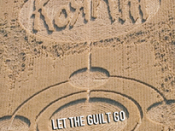The novel, Triage, by Scott Anderson, chronicles war photojournalist Mark Walsh's experiences as he struggles through the hardships of his occupation and the challenges of daily life. By incorporating themes such as guilt, forgiveness, the nature of modern war, and sense of belonging, Anderson is able to link characters and create complex parallel stories while maintaining an appealing plot.
When Mark is hit by an artillery shell in Kurdistan his world is turned upside down. He survives but his best friend Colin does not. Colin's final wish is to be taken back to New York, but in horrific turn of events, Mark finds himself having to leave Colin for dead to aid his own survival. He is taken to the Harir Cave, where Ahmet Talzani, the doctor at the hospital, practices Triage, where your fate is decided by a system of plastic, colour-coded tags. His system was simple, if you received a red tag then you would be treated, a yellow, and be left alone, but a blue meant death.
Talzani knows he has no time to decide wether a person can be cured or not, there are too many injured coming in in the aftermath of war. "Would you believe that sometimes I am so tired, or the cave is so dark, I am not even sure of the colours I give them?" "My little tags are for them, because they need to believe there is a system. For me I know it is all fate." It is from him that we learn about the nature of modern war. "There is no pattern to who lives and who dies in war... In war, people die because they do." Modern war is more about firepower than manpower. Gone are the days where landscapes were filled with foot soldiers attacking...


